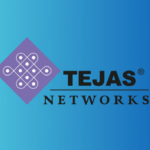
India’s leading steel company, JSW Steel, has taken a bold step. On Wednesday, it filed a review petition in the Supreme Court against the cancellation of its $2.3 billion acquisition of Bhushan Power and Steel (BPSL).
In a surprising turn last month, the court had rejected JSW Steel’s resolution plan and ordered BPSL’s liquidation—even though JSW had already taken over the company four years ago. The deal had once been hailed as a major win for India’s bankruptcy resolution process.

But now, things have changed. The ruling not only shocked JSW Steel but also spooked other potential buyers looking to invest in distressed assets in India.
JSW Steel said that the court’s ruling was based on “major procedural lapses.” Still, the company claimed there would be no operational impact. But the message this sends is loud and clear—India’s insolvency process is under pressure.
Also Read PSBs Dominate CD Market, Attracting Strong Demand from Mutual Funds
A Pause, But Not an End
The Supreme Court had paused the liquidation on May 26. This came after JSW Steel and some of BPSL’s creditors told the court they would challenge the decision. Now that the review petition has been officially filed, the focus shifts to how the court will respond.
What’s at Stake?
The collapse of the BPSL deal raised serious concerns among lawyers, investors, and bankruptcy experts. If a completed takeover can be reversed years later, how safe are India’s distressed deals?
It has already started to shake the confidence of global investors in the country’s Insolvency and Bankruptcy Code (IBC) framework.
JSW Steel’s case could become a benchmark for how India treats such high-stakes resolutions moving forward.
As reported by Reuters, lawyers believe this ruling could “chill investor sentiment” in the IBC market.
Why JSW Steel Isn’t Giving Up
JSW Steel is not just fighting for one deal. It’s fighting for credibility, predictability, and fairness in India’s investment climate. The company’s move shows it’s ready to protect its interests, no matter how tough the legal battle.
For an economy looking to attract foreign capital and resolve bad debts swiftly, how this plays out could shape the future of India’s restructuring ecosystem.
Also Read Tejas Networks Jumps 3.7% as Rakuten Symphony Joins Hands for Global 5G Push












